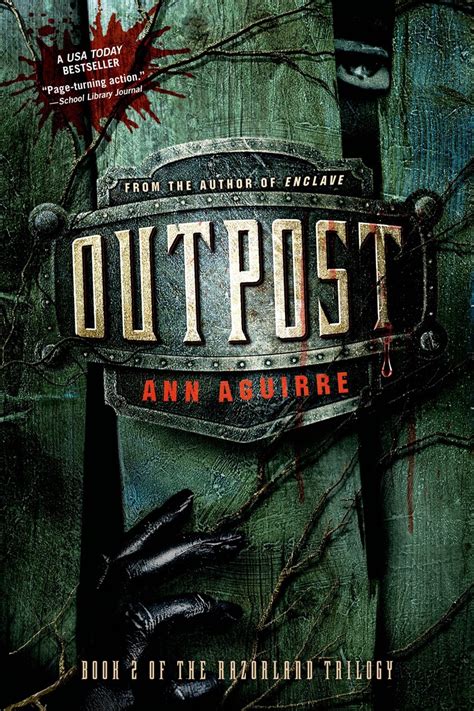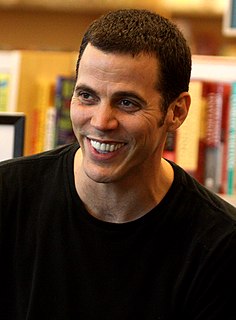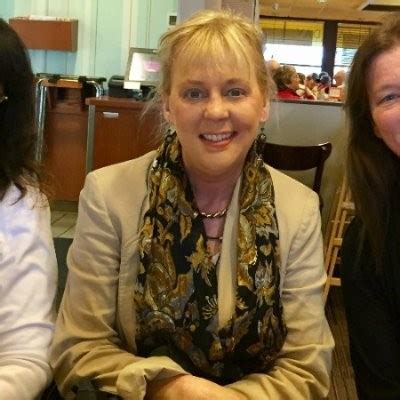A Quote by Ann Aguirre
He is not the same person as when we met, but . . . neither am I. Time has refined us, but instead of pushing us apart, we’re closer than ever.
Related Quotes
Dominator culture has tried to keep us all afraid, to make us choose safety instead of risk, sameness instead of diversity. Moving through that fear, finding out what connects us, revelling in our differences; this is the process that brings us closer, that gives us a world of shared values, of meaningful community.
To anyone else, Xavier's use of the word angel would have sounded like nothing more than a lovesick teenager professing his admiration. Only the two of us knew differently and now we both shared a secret- that brought us closer than ever. It was as if we had just sealed the bond between us, closed the gap, and made it final.
What I'm pushing for is an economic discipline that will be closer to other social sciences; in particular, we should be more pragmatic about the methods that we are using instead of pretending that we have our own scientific apparatus with very sophisticated mathematic models that distinguish us from sociologists and historians.
Every time we focus on someone else's darkness, we are blocking our own view of the light. We think the person we are involved with has attacked us or has withheld love from us, when they really haven't. We focus on their guilt instead of their innocence. Frequently people are just being themselves and we start projecting our own childhood dramas onto them, pushing away the very love we want so much.
Each part of the mind sees only a little of what happens in some others, and that little is swiftly refined, reformulated and "represented." We like to believe that these fragments have meanings in themselves - apart from the great webs of structure from which they emerge - and indeed this illusion is valuable to us qua thinkers - but not to us as psychologists - because it leads us to think that expressible knowledge is the first thing to study.
Freud taught us that it wasn't God that imposed judgment on us and made us feel guilty when we stepped out of line. Instead, it was the superego - that idealized concept of what a good person is supposed to be and do - given to us by our parents, that condemned us for what had been hitherto regarded as ungodly behavior.
None of us need one more person bashing or pointing out where we have failed or fallen short. Most of us are already well aware of the areas in which we are weak. What each of us does need is family, friends, employers, and brothers and sisters who support us, who have the patience to teach us, who believe in us, and who believe we’re trying to do the best we can, in spite of our weaknesses. What ever happened to giving each other the benefit of the doubt? What ever happened to hoping that another person would succeed or achieve? What ever happened to rooting for each other?
People say, "I have heart disease," not "I am heart disease." Somehow the presumption of a person's individuality is not compromised by those diagnostic labels. All the labels tell us is that the person has a specific challenge with which he or she struggles in a highly diverse life. But call someone "a schizophrenic" or "a borderline" and the shorthand has a way of closing the chapter on the person. It reduces a multifaceted human being to a diagnosis and lulls us into a false sense that those words tell us who the person is, rather than only telling us how the person suffers.
Globalization and trade liberalization were supposed to make us all better off through the mechanism of trickle-down economics. What we seemed to be seeing instead was trickle-up economics, accompanied by a destruction of democratic politics, as we moved ever closer to a system of 'one dollar, one vote' as opposed to 'one person, one vote.'
I know from personal experience that engaging with your community and helping others helps foster a sense of shared sacrifice and - at a time when our politics seem more focused on tearing us apart than bringing us together - that shared sacrifice will help us rekindle the national unity that has made us the strongest nation in the world.
Sociopaths are often extremely charming. They are people who are better than you and me at charming people, at being charismatic. I've heard this more often than I can count: "He was the most charming man I ever met," or, "She was the sexiest woman I ever met," or, "The most interesting person I ever met . . ."


































